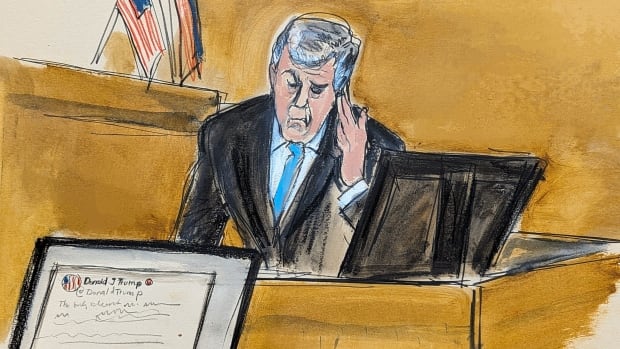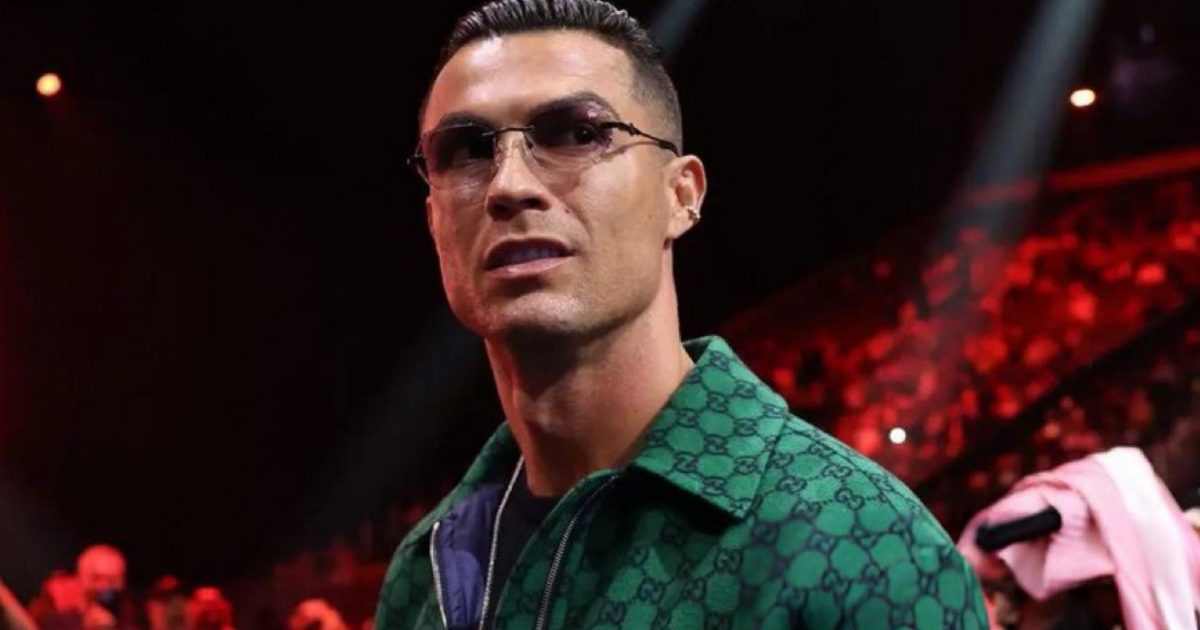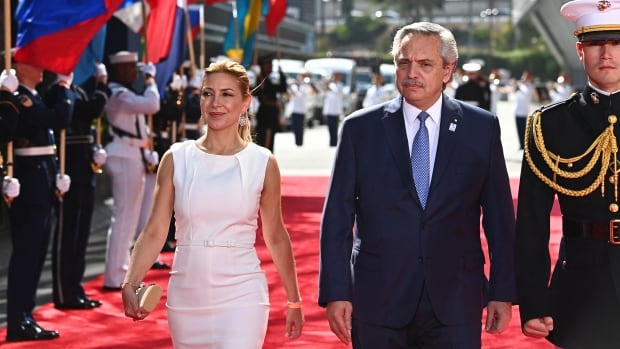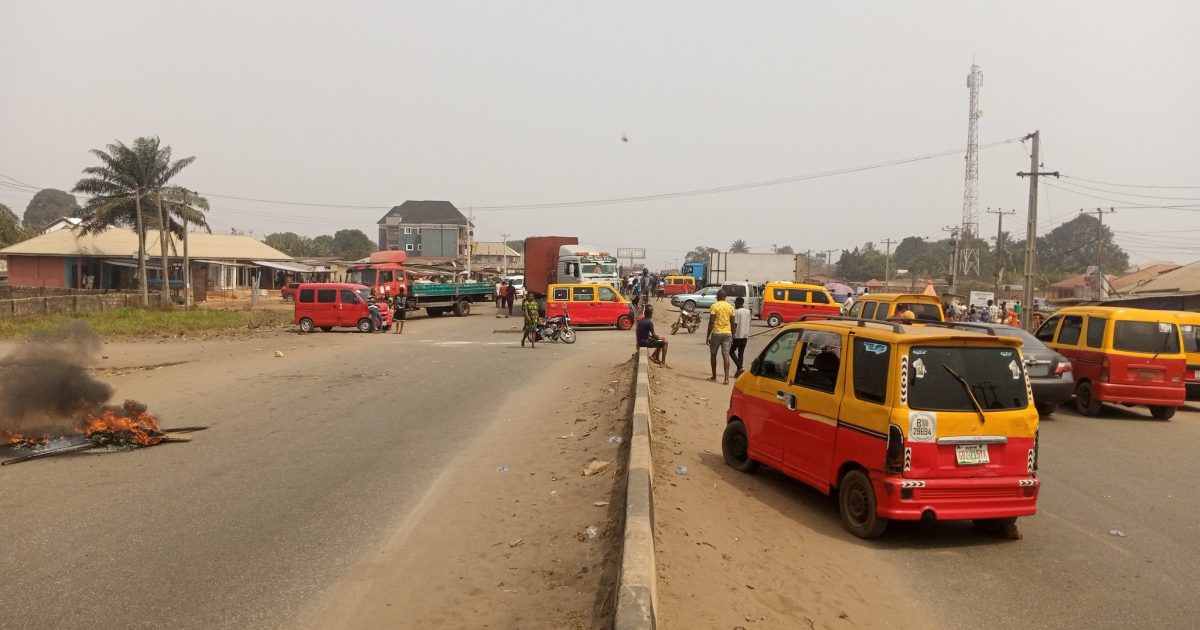The grilling of the star witness in Donald Trump’s criminal trial has commenced. The former U.S. president’s lawyers cast his ally-turned-nemesis Michael Cohen as an impulsive, biased and ill-tempered narrator.
The cross-examination at the New York Supreme Court started with a fiery opening. Within seconds, Cohen had been accused of commenting publicly on the case, ignoring repeated prosecution requests to keep quiet, launching into profane tirades against the defendant, and having a history of leaking to the media about legal cases.
Trump lawyer Todd Blanche came roaring out of the gate, saying he and Cohen had never met: “You went on TikTok and called me a crying little shit.”
“That sounds like something I would say,” Cohen said.
Blanche also said, “You referred to Trump as a dictator-douchebag, didn’t you?
“Do you recall saying, ‘Trump belongs in a f—ing cage, like an animal’?”
“I recall that,” Cohen replied.
After some aggressive back-and-forth, Cohen admitted he wanted to see the defendant convicted: “Sure,” Cohen replied, after repeated questions about whether he wanted Trump found guilty. The court heard that he’d said so on his podcast and even sold a T-shirt depicting Trump behind bars.

Pre-emptive grilling from prosecutors
Cohen was also subjected to a sustained grilling — from his own side.
It was prosecutors who subpoenaed him as their witness, with his detailed first-hand knowledge of Trump’s alleged cover-up of hush-money payments to a porn star.
Those same prosecutors launched a pre-emptive strike earlier on Tuesday. Before the defence could get at Cohen, they battered him with questions about his prolific history of lying and criminal convictions for fraud.
It was an attempt to prepare the jury for the withering cross-examination Cohen is now facing as Trump’s defence team took over.

The attacks were foreshadowed by the appearance of numerous Republicans at the Manhattan courthouse this week: the governor of North Dakota, the Speaker of the House of Representatives, and other members of Congress have made the political pilgrimage.
With Trump under a gag order, forbidden from attacking witnesses, several of these people rumoured for potential roles in the next administration came as part of Trump’s entourage, to disparage the case and the witness.
‘I regret doing things for him that I should not have’
The prosecution’s final questions for Cohen sought to present his past lies in the light most favourable to the case: As having been done exclusively for Trump.
In his second day on the witness stand, Trump’s former lawyer and personal fixer expressed regret for years of behaviour that he said cost his reputation, his freedom, his finances and his family.
“I regret doing things for him that I should not have. Lying. Bullying people,” said Cohen, who spent 10 years working for Trump, before their relationship soured.
“It violated my moral compass.”
With that, the prosecution completed its questioning. As court broke for lunch Tuesday, prosecutor Susan Hoffinger said, “Nothing further, your honour.”
That was after she’d gotten Cohen’s testimony bolstering the key facts of the felony case: That Trump knew about the hush-money payments to Stormy Daniels, that he in fact ordered them, that he approved a cover-up, and that it was done primarily for electoral purposes in 2016.

She had Cohen walk her through what he called false financial statements — invoices claiming he was being paid a legal retainer; Trump company statements mentioning legal expenses; and cheques signed by Trump, totalling $420,000 US, which Cohen said included a $130,000 US reimbursement for his own payment to cover up a sex scandal.

How the Cohen-Trump relationship soured
Cohen described how his relationship with Trump started to break down. After the FBI raided Cohen’s home in 2018, he said he spoke to Trump that day — and never again.
He said he felt various forms of pressure from Trump not to flip on him. This came in the form of public tweets from the president, and in private overtures from a lawyer who offered to discreetly convey messages to and from the president, through their mutual friend, Rudy Giuliani.
Cohen read into the court record one letter from that lawyer, Robert Costello, which said, “You are loved.… Sleep well tonight. You have friends in high places.” Cohen said he understood the “friend in high places” to mean then-president Trump, and called it reassuring that the man running the Justice Department was in his corner.
Trump’s former fixer and personal lawyer, Michael Cohen, takes the stand as a key prosecution witness at the former president’s hush money trial.
Months later, reports surfaced that Cohen was considering testifying before the Mueller probe into Russian collusion in 2016. His relationship soured with Costello, who again sent messages urging him not to flip on Trump.
At that point, in the spring of 2018, he said conversations with his family persuaded him to stop lying for Trump, and he made a promise to his wife, son and daughter: “I would not lie for President Trump any longer.”
He subsequently pleaded guilty to tax fraud, lying to Congress, and to a federal election finance crime, in a payoff to another Trump paramour peripherally related to this case.
There came the pre-emptive move from Hoffinger who, in an attempt to inoculate her witness, asked him repeatedly about all these misdeeds and — crucially — about why he committed them. Cohen’s reply: “For the benefit of Donald J. Trump.”
His lies for Trump included his one-time insistence that he had paid Daniels out of generosity for a friend, not expecting a refund; his lies to Congress denying Trump was trying to get a skyscraper built in Moscow during the 2016 election; and a misleading 2018 letter to the Federal Election Commission saying Trump had never refunded him for the Daniels payments. “It’s deceptive,” Cohen admitted Tuesday, because that letter omits that it was a Trump trust fund that paid him.
What Cohen, and the prosecution, left out, is that some of his criminal charges were unrelated to Trump — including tax-evasion charges involving Cohen’s taxi business.
Visitors to the courthouse
Outside the courthouse Tuesday, House Speaker Mike Johnson referred to Cohen as a known liar. Others rumoured to be candidates for roles in a future Trump administration came to the courtroom, and did interviews and rage-tweeted against the case.
They’ve included lawmakers Byron Donalds, Nicole Malliotakis and J.D. Vance, former presidential candidate Vivek Ramaswamy, and Doug Burgum, the sitting governor of North Dakota. They have been seated in the front row of the courthouse, with Trump’s son Eric.
Trump, for his part, has shown little emotion inside the courthouse. In fact, for many minutes Tuesday, his eyes were closed, and his head was titled sideways, as if he were sleeping — a common occurrence throughout the trial.








